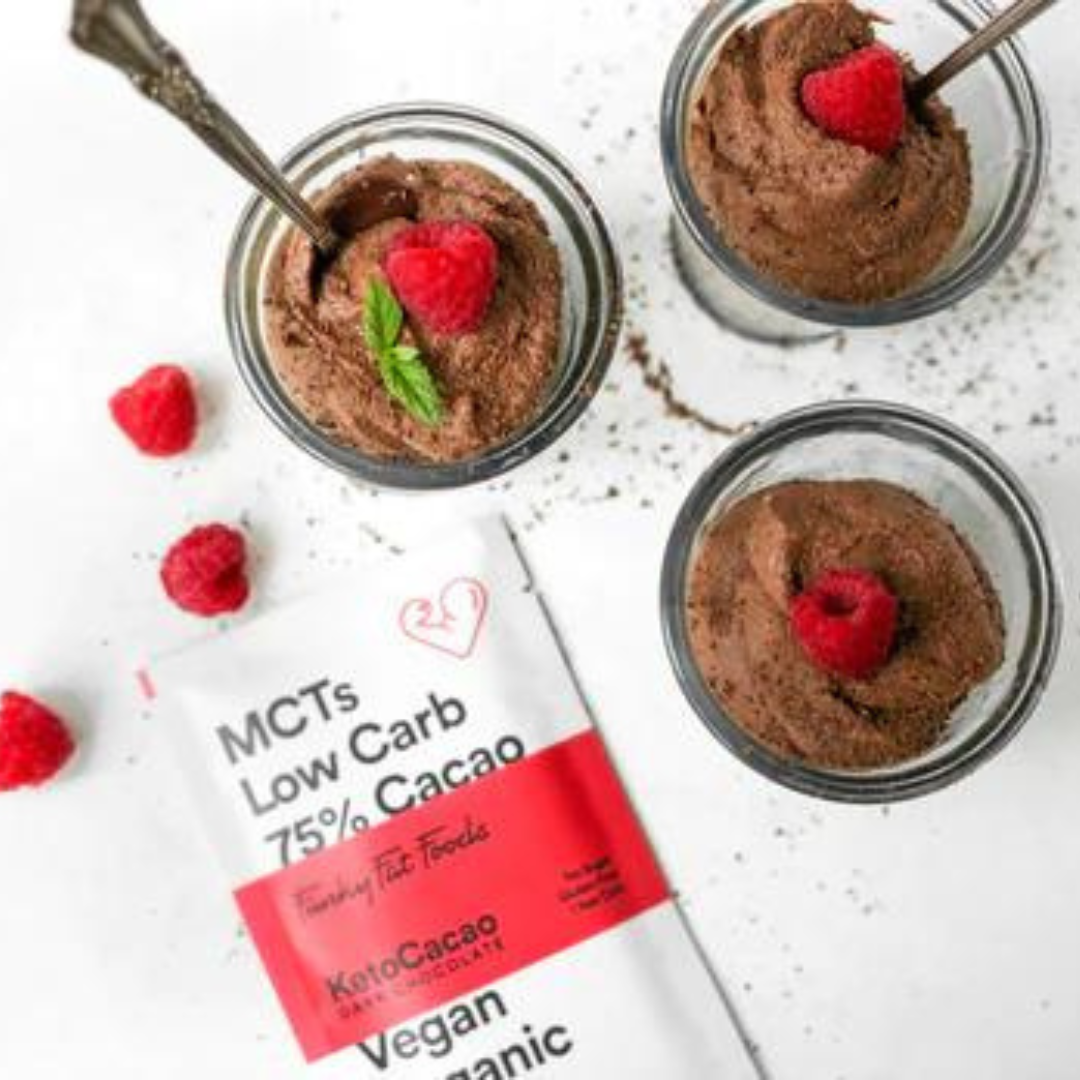You’ve probably heard of Intermittent Fasting by now. It’s a very popular health trend all thanks to studies and testimonials swearing by its health benefits like weight loss and mental clarity.
Intermittent Fasting is not a diet, it’s an eating pattern. Its most popular method is the 16:8, which means that you stay fasted for 16h and eat under the remaining 8h limit. If you have lunch at 12 pm, then you should finish dinner already by 8 pm to repeat the cycle.
But wait, wasn’t breakfast ‘the most important meal of the day’? Well, that is not really a rule. But if that’s a must for you, it’s always possible to organize your meals within the eating period.
Now that you might already be somewhat familiar with intermittent fasting and its benefits on health. Let me ask you:
Do you know how to do it the right way?
Or if it's ok to fast if you have diabetes?
Can pregnant women fast?
In this article, I'm going to answer common questions about Intermittent Fasting and some basic info you must know before starting to implement fasting in your diet.
So, let's talk about it!
First of all: what does Intermittent Fasting mean?
Fasting is the postponement of food intake to give the digestive system and body, in general, a rest. When you're not eating, you are intermittently fasting.
Although it sounds strange, every day you are practising fasting: from supper to breakfast. It's easy because you are sleeping, except if you dream about food...
What happens during a fast?
When you are not eating, the body runs out of glucose in the bloodstream, our primary source of fuel, and it begins to use the glycogen stored in the liver. Then, insulin levels start to fall. This signals the body that is time to start burning stored energy because there's no more to burn from food.
This is why intermittent fasting can be an interesting strategy (always under medical control!) for people with insulin resistance , type 2 diabetes or obesity.
Then, when your body has used up all the glucose, it starts using stored fat as fuel. In other words, it switches from working with "sugar" to working with fat and gradually empties the fat deposits in the body.
It's not easy for the body to switch from sugar-burning to a fat-burning state, so you may want to try fasting with a keto diet to become the master of the fat burners.
To summarise, intermittent fasting allows your body to run on your stored energy. That is why fasting is a great tool for weight loss as well. But we're gonna get to that.
What are the benefits of intermittent fasting?

These are some of the benefits of fasting:
- Weight loss: some studies show an improvement in body composition and health markers, like this one. It shows that fasting can reduce body weight and body fat.
- Insulin resistance: If you have problems managing carbohydrates because your pancreas can’t work properly, you must know that IF can improve insulin resistance and other health markers. You can read this study here on where the male participants improved their insulin levels, insulin sensitivity, blood pressure and stress level after 5 weeks on Early Time-Restricted Feeding.
- Lipid profile: How are your cholesterol levels? What about your triglycerides? Did you know that intermittent fasting can help you with your dyslipidemia? This study shows an improvement on the lipid profile of obese male and woman by reducing total cholesterol, LDL and triglycerides and raising HDL levels (also known as “good cholesterol”).
- Cancer: In the last years, the number of studies on cancer and intermittent fasting has increased a lot. Good news for us. It can be a good strategy to prevent some types of cancer, like breast cancer and also is a promising strategy for patients on chemotherapy as a tool to decrease toxicity and increase the efficacy of chemotherapeutic agents.
The most common intermittent fasting strategies
- 12/12
That means 12 hours of fasting and 12 hours of eating.
For example, if you have dinner at 8 pm (ideally) and go to bed at 11 pm, then, next day at 8 am you would break this fast by eating something before going to work or right there.
This is the minimum rest we should give our bodies regularly (preferably daily), but in some countries, there's a cultural habit of eating dinner very late and having breakfast very early before going to work. This is not good for your circadian rhythms and probably you won't be able to rest well.
- 16/8
That means 16 hours of fasting and 8 hours of eating.
With this type of fasting, you can begin to see results in terms of the body's use of insulin and fat loss. In those 8 hours you have to eat, you can choose to make two big meals or three lighter ones depending on our preferences.
How can you start practising this type of fasting? By having dinner around 9 pm and having a good lunch at around 1 pm. This system is perfect if you work a split shift and have little time at midday to eat or for if you usually wake up with no appetite. The 16/8 fast can be done several days a week!
These two fasting strategies ( 12:12 and 16:8 ) are the most common and easy to carry out.
However, there are others which include fasting windows of 20h, 24h or even several days. These require a little more adaptation and I do not recommend trying them out without experience in fasting or professional accompaniment.
Tips to start Intermittent Fasting
The easiest way to start fasting is by delaying the first food intake (breakfast) and wait, for example, until lunchtime.
Some people prefer not to have dinner and to have a hearty breakfast. There are different ways to do this and there is none better than another, but it depends on your individual preferences and needs.
Fasting is one more nutritional strategy if you want to lose weight and improve some health aspects, but not the only one. If you're a healthy adult, you can enjoy its benefits no matter the diet you are following.
However, not everyone has the same tolerance for fasting. So here it is my advice: experiment different fasting formulas by yourself and decide which one works better for you.
You can start gradually, perhaps with a 12-hour fast and then increase it as you go. You may feel hungry and even have a headache or feel a bit weak the first time you fast. This can happen. But listen to your body. If you feel like this persistently, perhaps it is best to start with a lower window and increase it over time.
Just remember to stay hydrated and break your fast with a nourishing meal, not immediately binge after your fasting period ends.
Can you do any physical activity while fasting? Yes. But depending on your goals, this may not be the best option. If you do a light activity and feel fine, go ahead. You'll get used to it and will be able to do more and more vigorous activities.
Remember: fasting is a tool to improve your health, but it does not depend on just one factor. First, you should focus on improving your eating and lifestyle habits, and then you can try extra nutritional strategies to optimise your well-being.
Oh! Almost forgot another very important reminder: don't compare yourself to others. You do you!
What can you drink or eat during a fast?

Can I drink coffee when I'm intermittent fasting?
Does bulletproof coffee break my fast?
For sure that during a fast you must drink in order to not be dehydrated. In general, drinking non-caloric drinks won’t break your fast, but you must be careful choosing the best options for you: diet-soda is not a good idea.
So, focus on drinking water, tea or black coffee (without milk).
If you are on a long fast, it would be interesting to add stock or broth - don't forget your electrolytes!
Side note:
This is a highly debated topic. That's why we asked Dietitian Noor Struik from The Nourishing State what's her take on what does and what doesn't break a fast. In short, she adds it depends on your goal with fasting. If your goal is weight loss, you can drink a bulletproof coffee with butter or MCT in the morning while fasting.
If you're in doubt, you can stick to your regular black coffee, water or tea, or contact an experienced dietitian or physician that can guide you through the process of intermittent fasting depending on your needs.
Is fasting safe for everyone?
Fasting shouldn't be a problem if you are in good shape but, in some cases, fasting can be hard to follow or even dangerous.
Pregnant women or women who are breastfeeding should not practice fasting as their nutritional needs are higher than ever. One of the things that can come with fasting is calorie restriction. That means when you are eating fewer calories than the ones you need in a day.
When you are pregnant or breastfeeding, nutritional needs are higher because you also have to feed your baby. We recommend you not to fast and eat plenty of vegetables, proteins and healthy fats, like our chocolate bars ;)
Diabetics under insulin medication also have to be aware if they want to fast. During a fast, insulin levels decrease so they will have to adjust the insulin units they get by injection to prevent a drop.
Women with hormonal misbalances (like infertility or hypothyroidism) should talk about Intermittent Fasting with their endocrinologist because, in some cases, it can harm the thyroid or even can cause amenorrhea or other hormone-related issues.
People with eating disorders also should avoid calorie-restriction strategies to not harm their health, physical and mental.
If you think you have a problem managing your food intake, we recommend you to contact your health provider. When in doubt, always consult a trusted nutritionist or doctor, take the time to do your research and find a way of eating that’s right for you.
Do you practice intermittent fasting?
Tell us your experience or your questions on the comment section below!
Other blogs you might enjoy:
* Disclaimer:
This article is not intended to be a substitute for professional medical advice, diagnosis, or treatment. Always seek the advice of your physician or health provider with any questions you may have.




Leave a comment
All comments are moderated before being published.
This site is protected by reCAPTCHA and the Google Privacy Policy and Terms of Service apply.